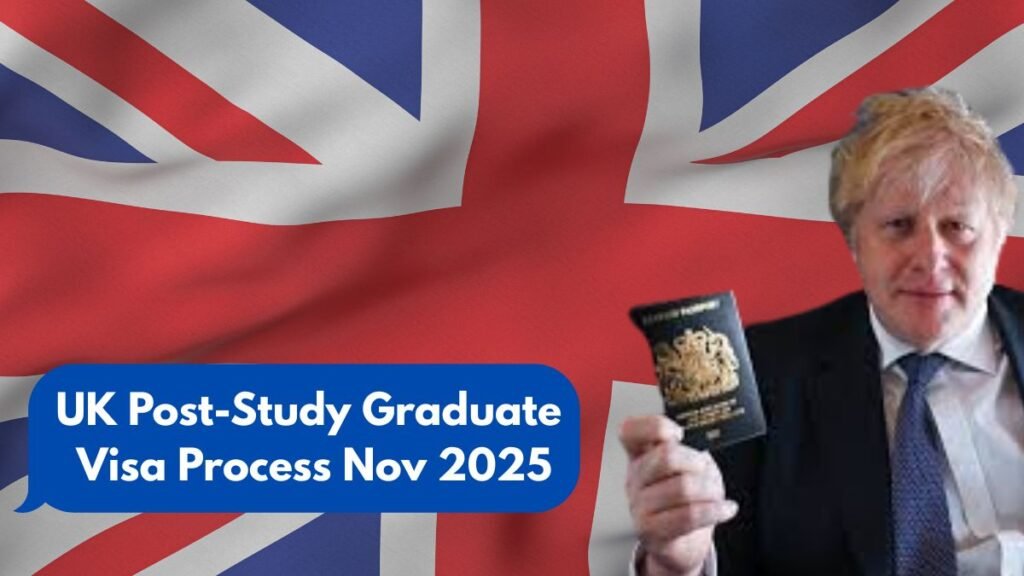The UK Graduate Visa lets international students stay and work after finishing their degree. It opens doors to jobs without needing employer sponsorship. In November 2025, the rules stay steady, giving you two years to build your career if you apply before the end of 2026.
This visa fits right into plans for long-term stays through other work routes. Many graduates use it to gain experience in fields like tech, finance, and healthcare. Let’s break it down step by step so you can plan your next move with confidence.
What Is the UK Graduate Visa?
This visa, part of the Graduate Route, helps you switch from student life to professional work. You get time to find jobs, start businesses, or explore sectors without visa worries. No job offer is required upfront, unlike sponsored options.
It suits those who want flexibility right after graduation. Since its start in 2021, it has helped over 200,000 people settle into UK roles. For November 2025 applicants, it remains a key bridge to skilled worker visas.
Who Can Apply? Key Eligibility Rules
To qualify, you need to meet clear criteria. These ensure the visa supports genuine graduates. Here’s what matters most:
- Current Location and Visa Status: You must be in the UK on a valid Student visa or the old Tier 4 General student visa.
- Course Completion: Your university or college must confirm to the Home Office that you finished an eligible program, like a bachelor’s or master’s degree. You don’t need your final certificate to apply—just the confirmation.
- Study Duration: You studied the course full-time in the UK for the required time, usually the full length of your degree.
- No Prior Use: You haven’t used the Graduate Route before on the same qualification level.
PhD holders get extra time, but everyone else follows the standard rules. Dependants, like partners or children already with you on student visas, can join if they meet family rules. New dependants can’t apply, except for kids born in the UK during your stay.
Also Read: UK Family Visa Process November 2025: Sponsorship, Requirements & New Rules
Step-by-Step Application Process
Applying is straightforward if you prepare early. Start right after your school notifies the Home Office of your completion—often weeks before official graduation. You must apply before your student visa ends to avoid gaps. Here’s how it works in November 2025:
- Gather Proof: Get your passport, student visa details, and course completion letter from your provider.
- Go Online: Use the official UK government site to fill out the form. Create a UKVI account if you don’t have one.
- Upload Documents and Biometrics: Submit scans and book an appointment at a visa center for fingerprints and photos. This step confirms your identity.
- Pay Up Front: Cover the fee and health surcharge during the online process.
- Wait for Approval: Decisions come in about eight weeks. You can stay in the UK legally while processing.
If issues arise, like document checks, it might take longer. Track your status online. For November apps, aim to submit by mid-month to beat holiday rushes.
Costs and Fees Breakdown
Budgeting helps avoid surprises. Fees fund the system and cover health access. For a standard two-year visa in November 2025:
| Fee Type | Amount (GBP) | Notes |
|---|---|---|
| Application Fee | £880 | Per person; same for dependants. |
| Immigration Health Surcharge (IHS) | £2,070 (for 2 years) | £1,035 per year; covers NHS use. PhD gets £3,105 for 3 years. |
| Biometrics Fee | Included in app fee | No extra if done at appointment. |
Total for one person: around £2,950. Doctors or nurses in health roles might switch to a cheaper visa and claim IHS refunds. Fees could rise slightly, so check the site before paying.
How Long Does the Visa Last? Work Rights Explained
In November 2025, your Graduate Visa gives two years from approval date. PhD and doctoral grads get three years. This changes to 18 months starting January 1, 2027, so apply soon if graduating late 2026. You can’t extend it, but switching to a Skilled Worker visa keeps you going.
Work options are broad and flexible:
- Take any job, full-time or part-time, in any field—except pro sports.
- Be self-employed or start a business.
- Do voluntary work for charities.
- No salary minimum or sponsor needed.
You can’t claim most benefits or public funds. This setup lets you network, upskill, and aim for sponsored roles. Many use it to land jobs in London or Manchester firms.
Tips for Success: Finding Work After Your Visa Starts
Once approved, focus on job hunting. Update your CV with UK experience. Use sites like LinkedIn, Indeed, and Gradcracker for entry-level posts. Attend career fairs—universities often host them post-graduation. Network via alumni groups. Consider sectors short on talent, like engineering or data analysis. Track visa expiry early to switch routes smoothly. If self-employment calls, register properly but know it won’t count toward settlement.
Common Pitfalls to Avoid
Delays happen if you miss deadlines or skip confirmations. Double-check your course qualifies—short or non-degree programs might not. Don’t travel abroad during processing without advice. For dependants, prove relationships with docs like marriage certificates. Stay compliant: no unauthorized work on your student visa.

